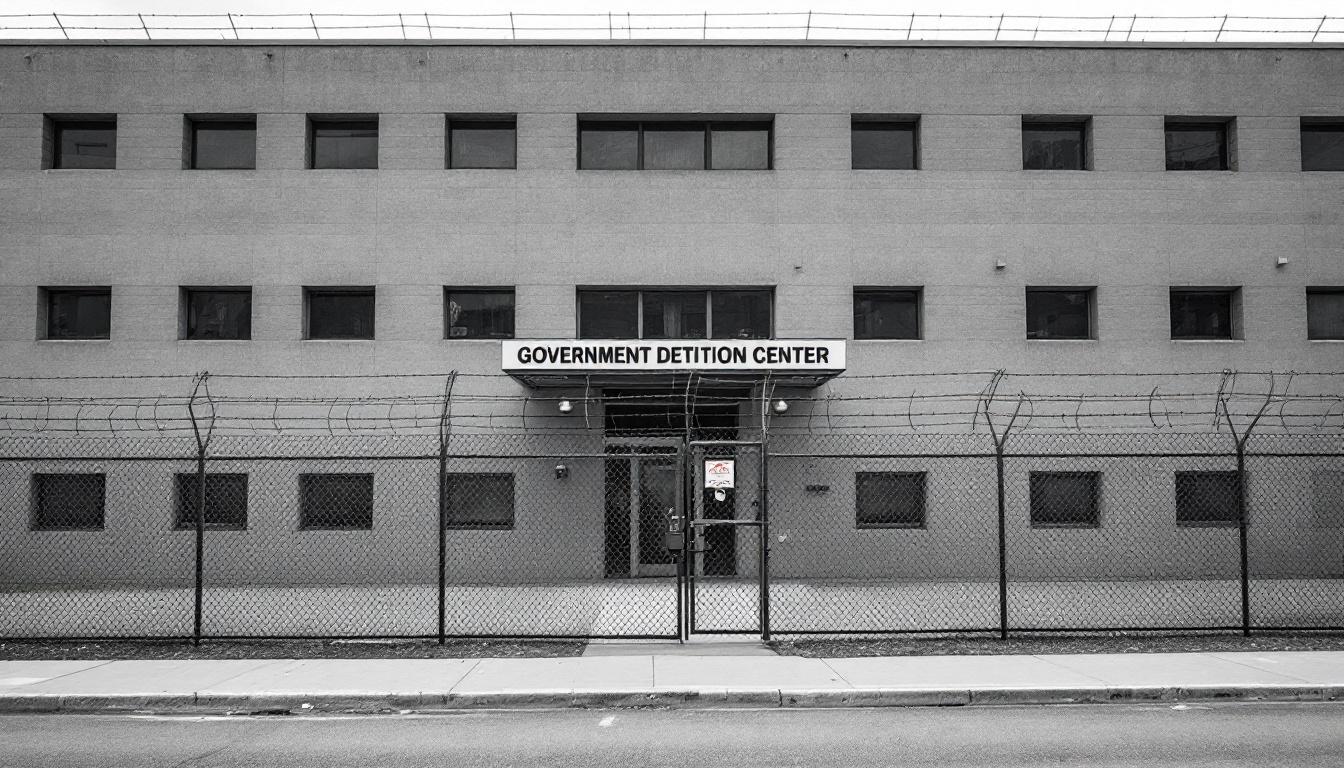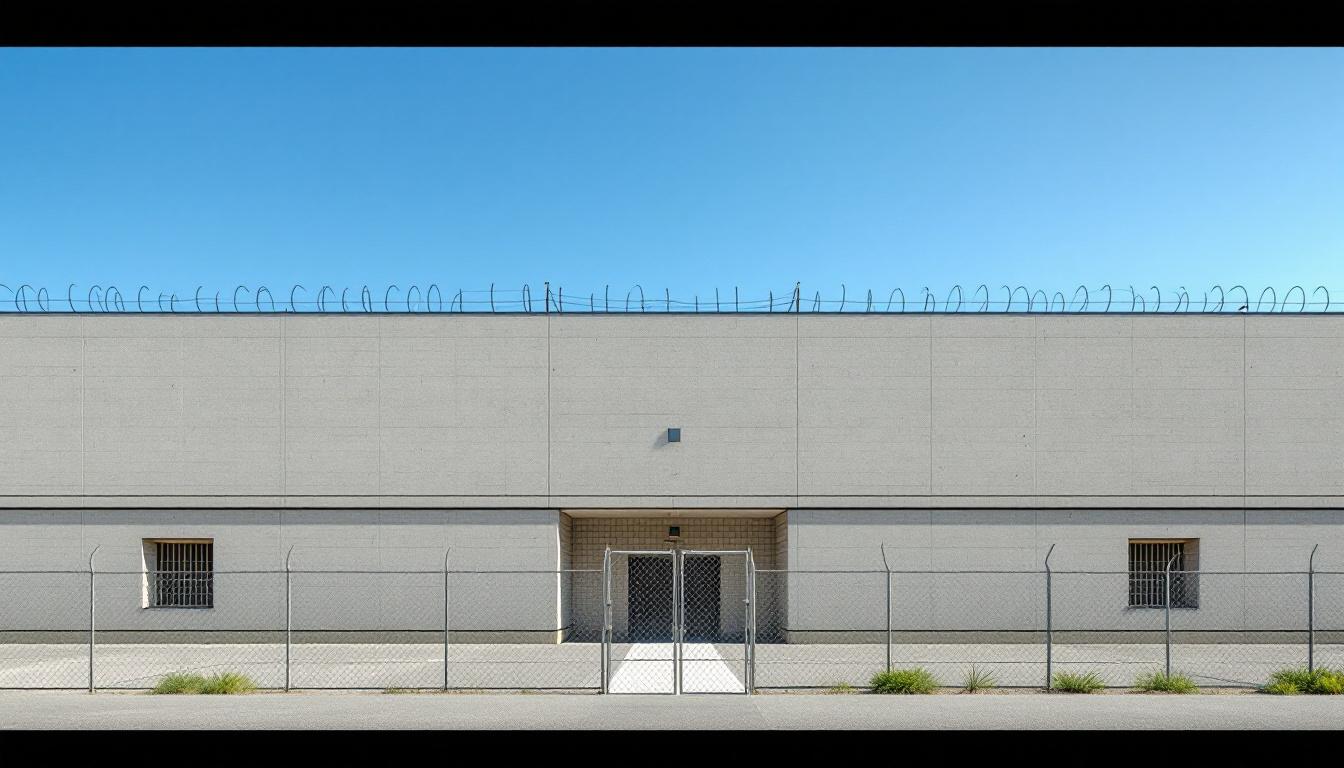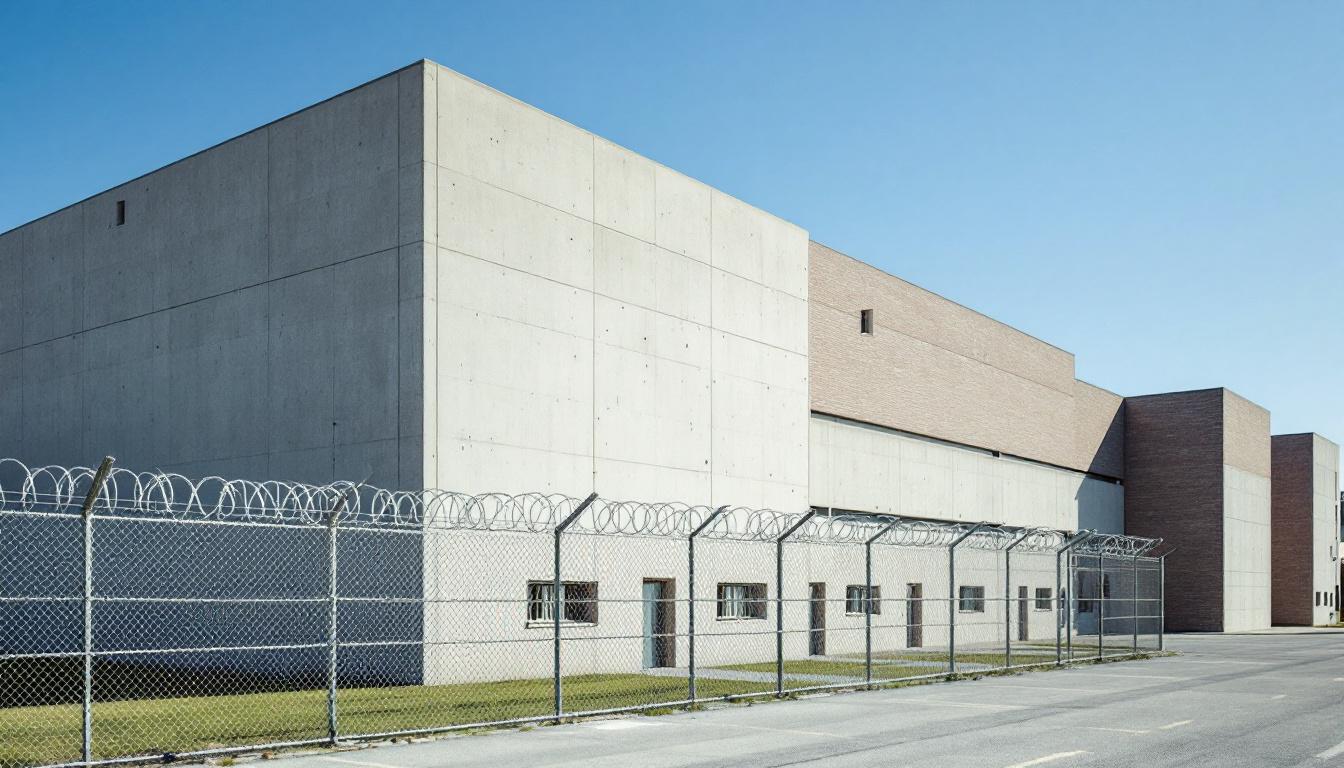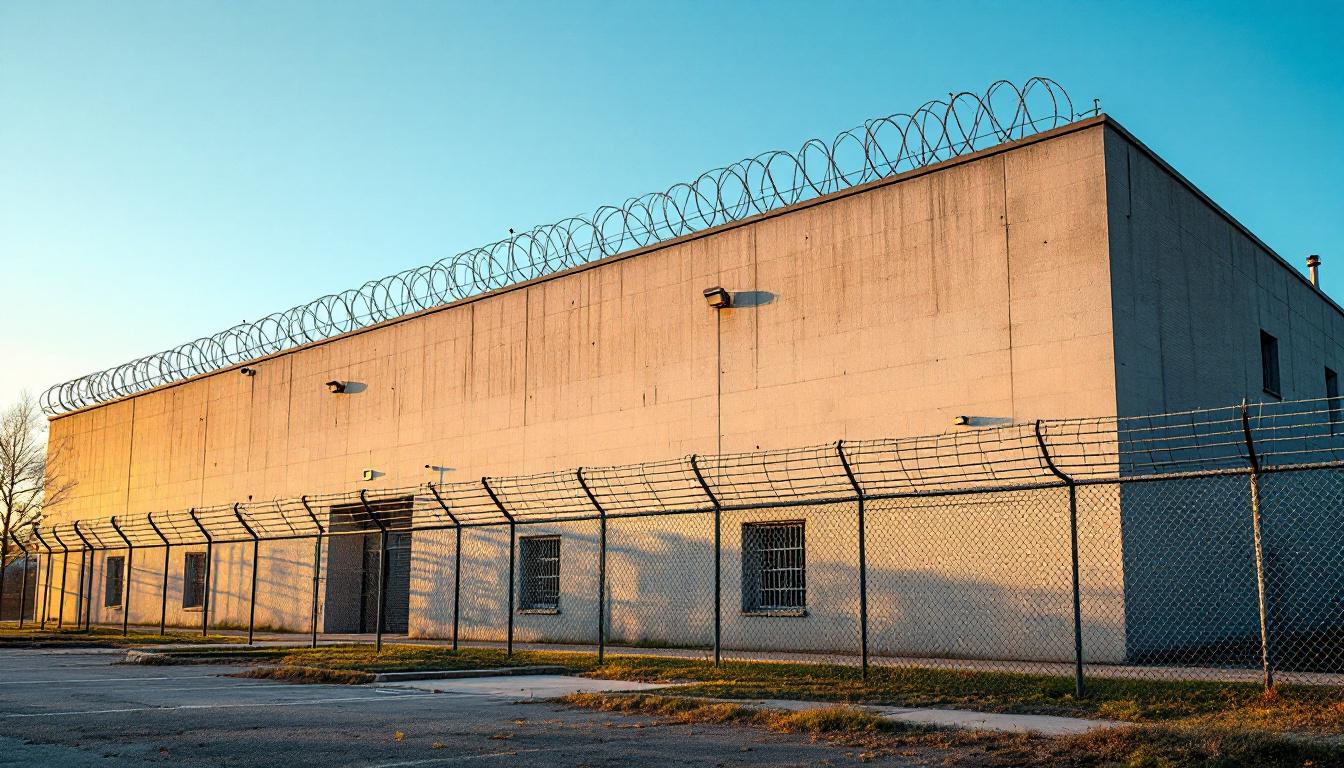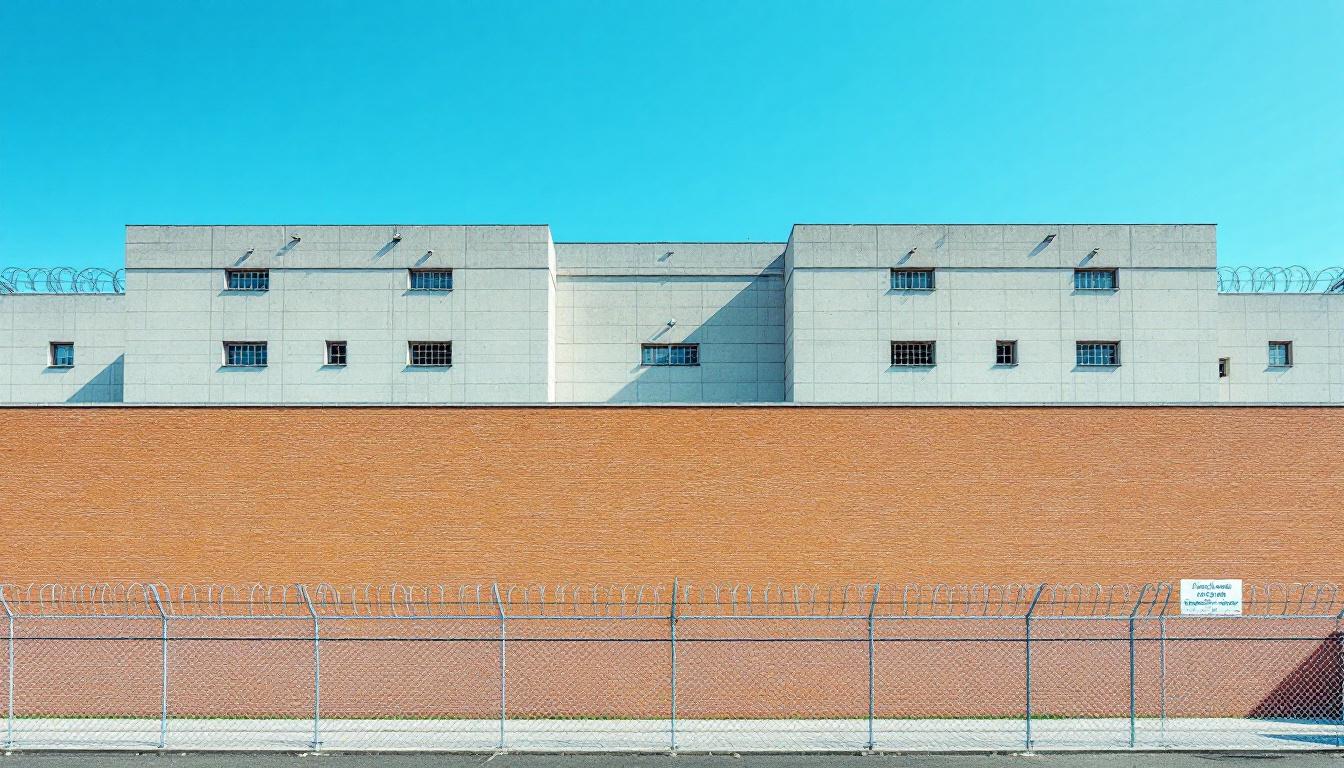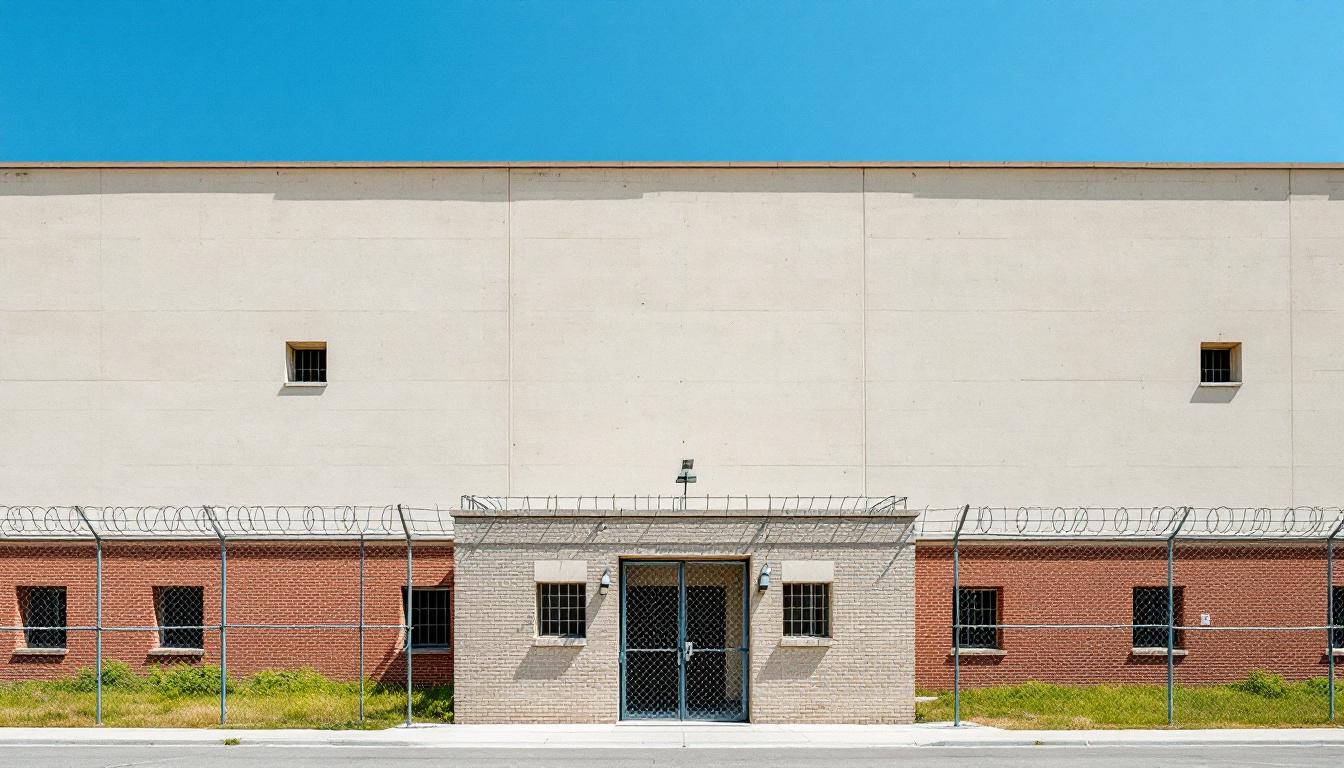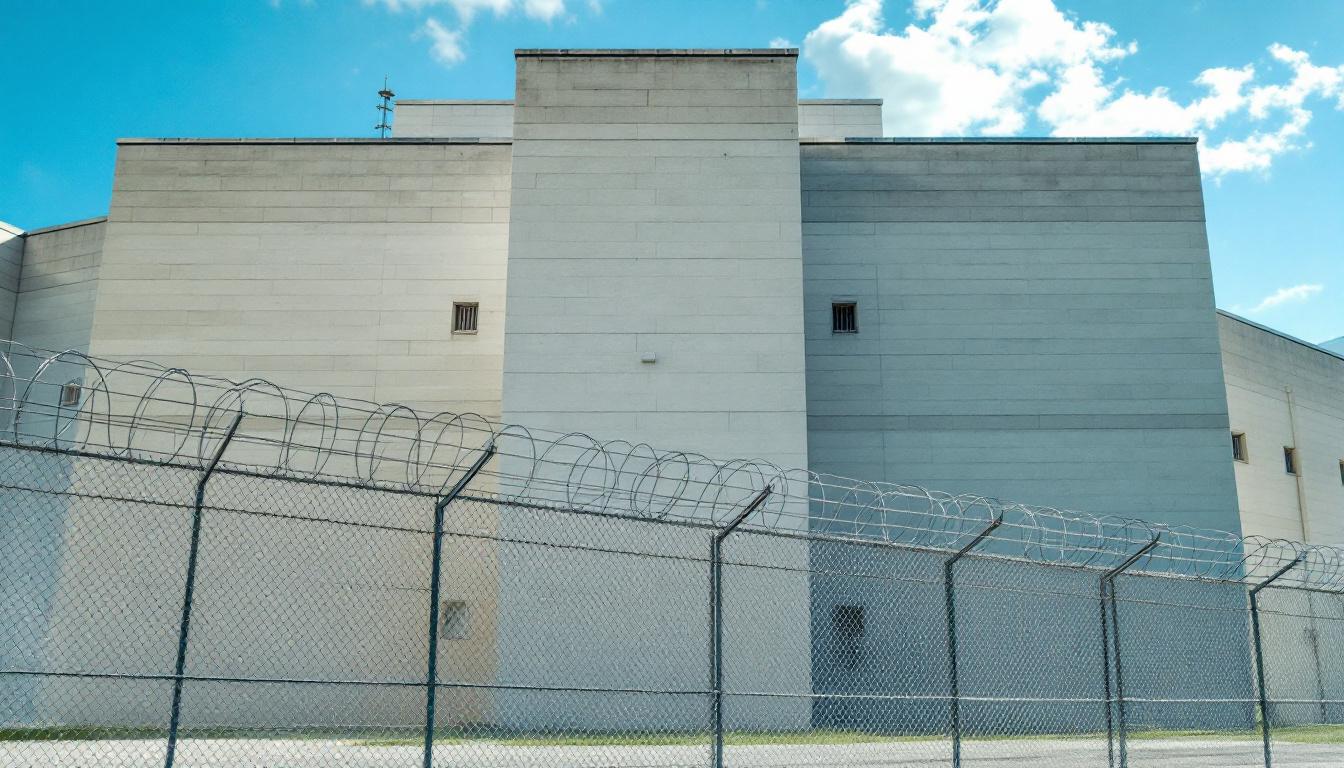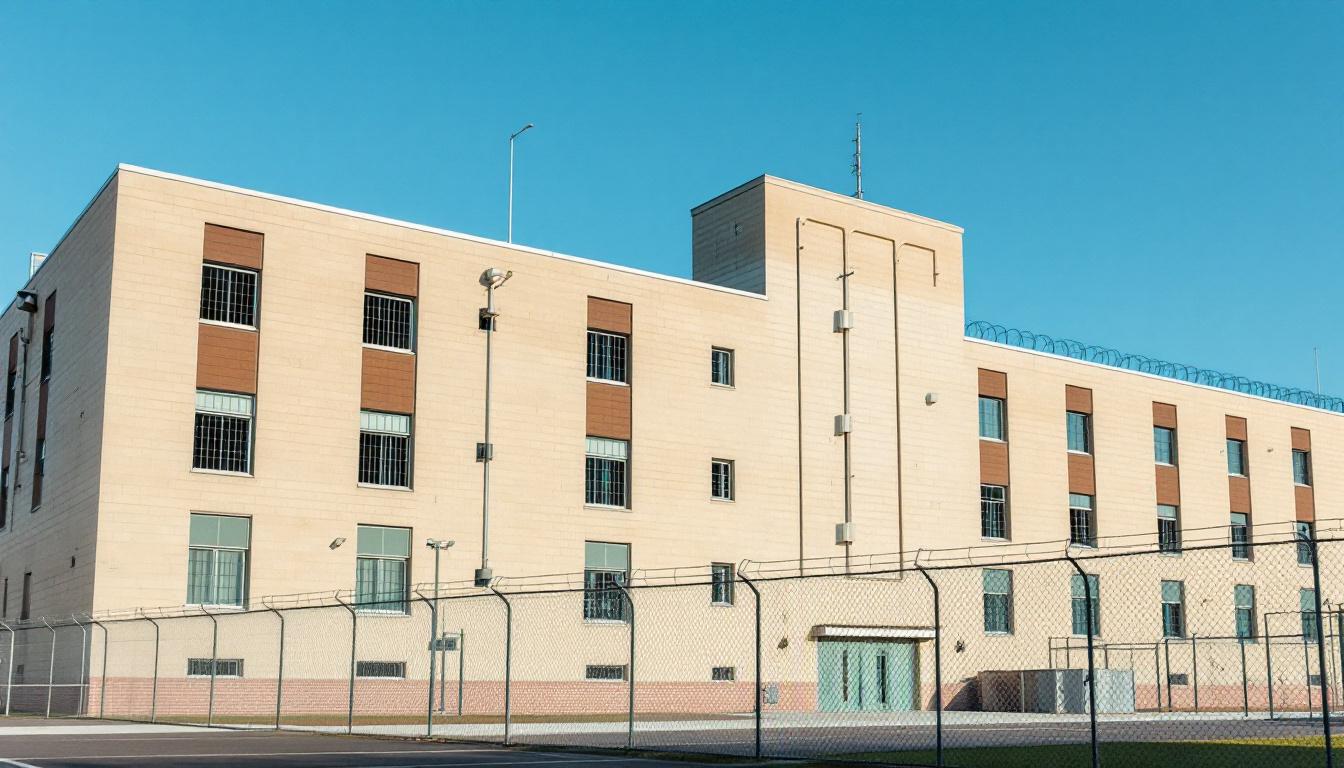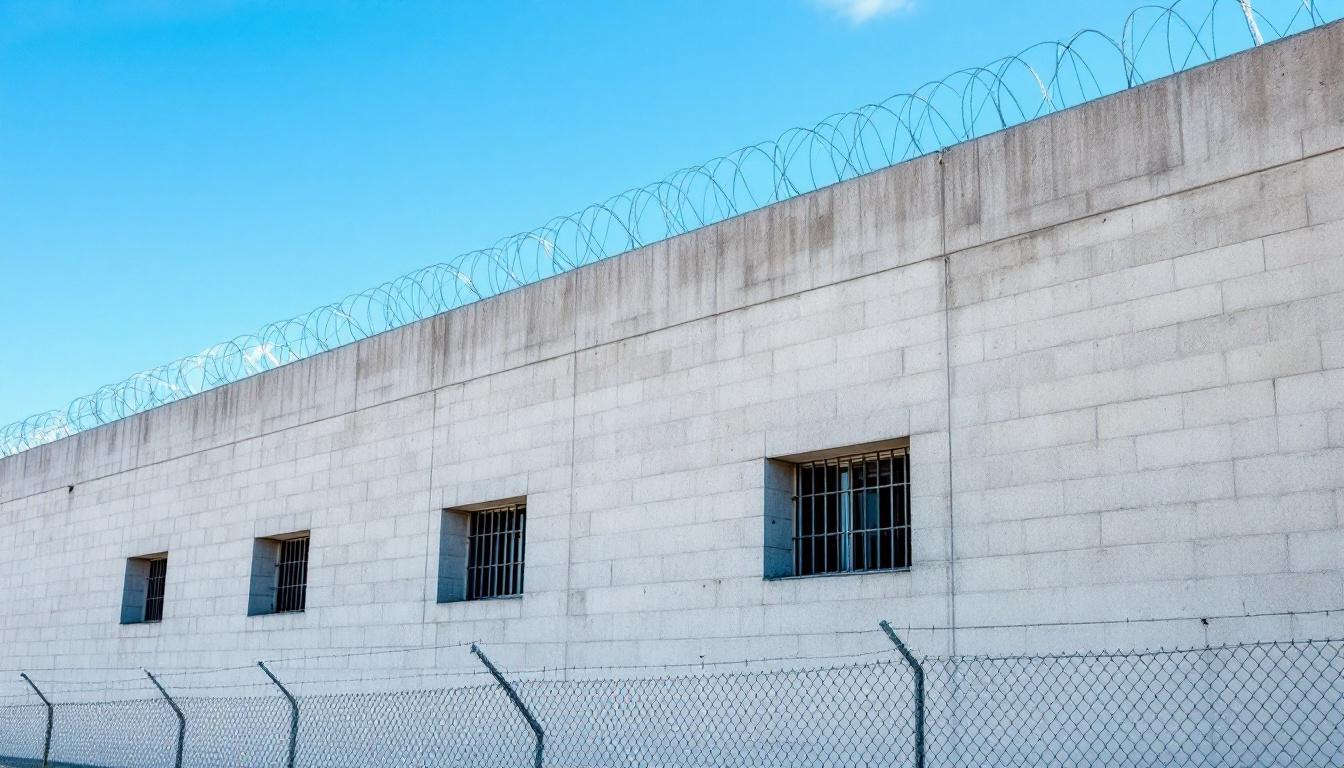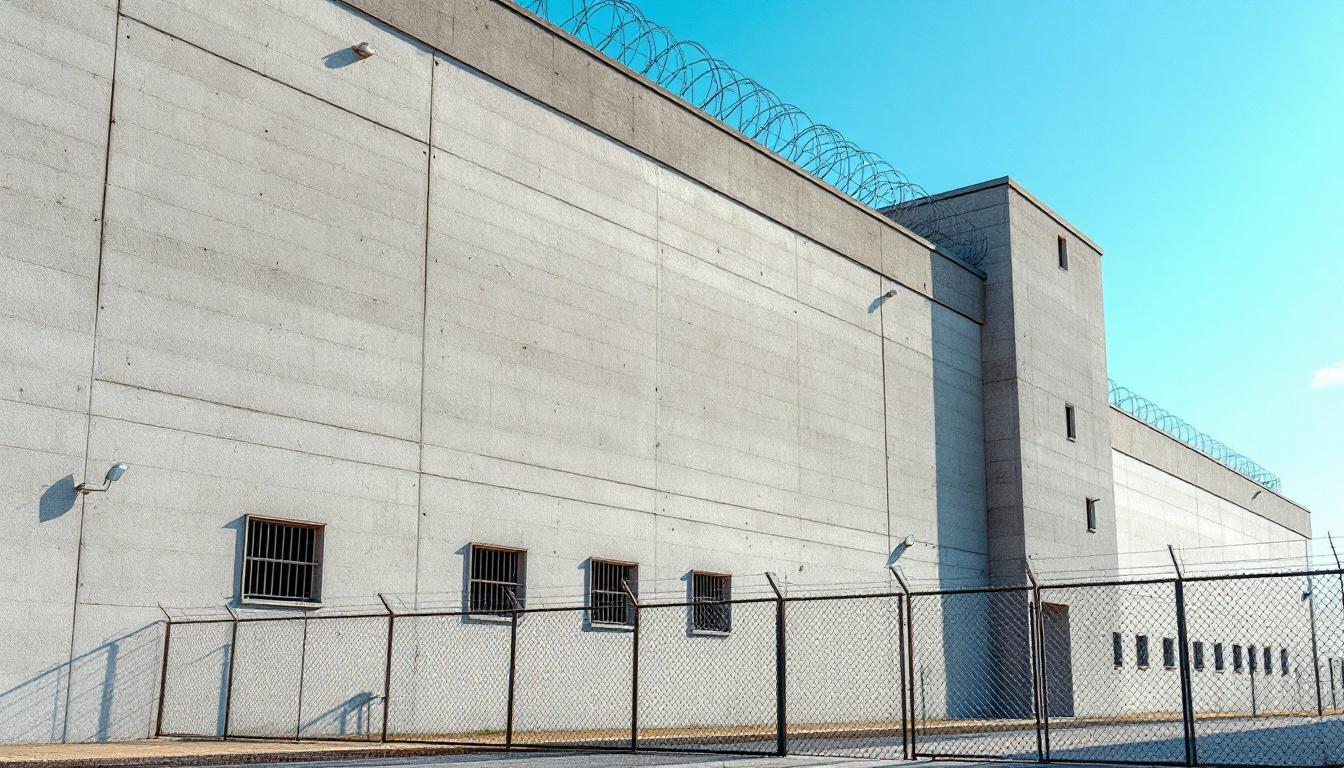
Quick Navigation
How to contact an inmate at Pocatello Womens Health Clinic
This comprehensive guide will walk you through how to connect with an inmate at Pocatello Womens Health Clinic. Follow the steps below to find an inmate and send letters and photos:
- Search for the inmate using our search tool below
- Create your account or log in to Penmate
- Write your message (up to 6,000 characters)
- Send instantly - inmates receive printed copies daily
Find an Inmate
Search for an inmate to start communicating today
Tip: You can search by first name, last name, or inmate ID number
To contact a person at Pocatello Womens Health Clinic start by searching for the person on the official facility website. Perform a search by following these steps:
- Step 1: Enter their first name and last name into the search form and click "Search"
- Step 2: Locate their inmate record
- Step 3: Write down their Inmate ID and any housing information provided
Important! Be sure to enter the person's full name. Nicknames should not be used.
How to Send Messages to Inmates

You can use your phone or computer to send emails, letters, and photos to an inmate. Messages are sent electronically to inmate tablets or kiosks at the facility. If you would like to send a message, start by searching for an inmate at Pocatello Womens Health Clinic.
Sending Photos and Postcards

A great way to send love and support to a loved one at Pocatello Womens Health Clinic is to send photos and postcards. It only takes a few minutes to send photos from your phone and it makes a huge difference. You can also mail postcards with words of support and inspiration, or design your own postcard for special moments like birthdays and holidays.
Important! Be sure not to send any explicit photos or they may not be approved by the facility. You can also use a photo printing app like Penmate to make sure your photos are printed at the correct size (4x6 or 3x5) and are mailed according to the rules and regulations of Pocatello Womens Health Clinic.
Frequently asked questions about Pocatello Womens Health Clinic
-
How long does it take to deliver a message?
If you're sending an email message your letter is usually delivered within 24-48 hours. For messages sent via mail you should expect delivery within 3-7 days. All messages will need be approved by Pocatello Womens Health Clinic.
-
How much does it cost to send a message to Pocatello Womens Health Clinic?
You can send a message free using your phone or mail a message via USPS for the price of a $0.60 stamp and envelope. You can also purchase credits or e-stamps from services starting at $1.99.
-
What services can I use to contact an inmate at Pocatello Womens Health Clinic?
Penmate
You can use Penmate to send letters and photos to an inmate from your phone. It's an easy way to stay in touch during your loved one's incarceration. Use the inmate locator to find an inmate's location and contact information, then you can send messages within a few minutes.
Securus messaging
Securus may be another option for communicating with an inmate at Pocatello Womens Health Clinic. You can create a friends and family account and purchase credits to send messages. All messages will be reviewed and must be approved by the facility.
JPay
Some county jails and state prisons may support sending messages with JPay. You must register an account with the system, find your loved one, and purchase stamps to send messages. For some locations you can also attach photos.
Smart Jail Mail
You may also check if Smart Jail Mail is available at Pocatello Womens Health Clinic. Smart Jail Mail is operated by Smart Communications and has contracted with some state and county jails. After purchasing credits, your messages and photos are sent to the facility, printed out, and then handed out to your loved one.
-
What is the mailing address of Pocatello Womens Health Clinic?
Mailing address:
Pocatello Womens Health Clinic
777 Hospital Way
Pocatello, ID 83201
Phone: (208) 232-6100 -
What are the visiting hours at Pocatello Womens Health Clinic?
Visiting hours at Pocatello Womens Health Clinic vary by housing unit and security level. Generally, visits are scheduled on weekends and holidays, with some facilities offering weekday visits. Contact the facility directly at (208) 232-6100 or check their website for the current visiting schedule. Visits typically last 30-60 minutes and must be scheduled in advance.
-
What items are prohibited when sending mail to Pocatello Womens Health Clinic?
Prohibited items typically include: cash, personal checks, stamps, stickers, glitter, glue, tape, staples, paperclips, polaroid photos, musical or blank greeting cards, hardcover books, magazines with staples, and any items containing metal or electronics. Only send letters on plain white paper with blue or black ink. Photos must be printed on regular photo paper (no Polaroids). Always check with Pocatello Womens Health Clinic for their specific mail policies.
-
How do I send money to an inmate at Pocatello Womens Health Clinic?
You can send money to an inmate at Pocatello Womens Health Clinic through several methods: 1) Online using JPay, Access Corrections, or the facility's approved vendor, 2) Money orders mailed directly to the facility with the inmate's name and ID number, 3) Kiosks located in the facility lobby, or 4) Over the phone using a credit or debit card. Fees vary by method, typically ranging from $2.95 to $11.95 per transaction.
-
Can I schedule a video visit with an inmate at Pocatello Womens Health Clinic?
Many facilities now offer video visitation as an alternative to in-person visits. At Pocatello Womens Health Clinic, video visits may be available through services like Penmate, Securus Video Connect, GTL, or ICSolutions. Video visits typically cost $10-20 for 20-30 minutes and must be scheduled in advance. You'll need a computer or smartphone with a camera and reliable internet connection. Contact the facility for their specific video visitation policies and approved vendors.
-
What identification do I need to visit an inmate at Pocatello Womens Health Clinic?
All visitors must present valid government-issued photo identification such as a driver's license, state ID, passport, or military ID. Minors must be accompanied by a parent or legal guardian who can provide the minor's birth certificate. Some facilities require visitors to be on the inmate's approved visitation list, which may require a background check. Contact Pocatello Womens Health Clinic for specific ID requirements and visitor approval procedures.
-
How can I find out an inmate's release date?
To find an inmate's release date at Pocatello Womens Health Clinic, you can: 1) Use the online inmate search tool if available, 2) Call the facility's records department, 3) Contact the inmate's case manager or counselor, or 4) Have the inmate provide this information during a call or visit. For privacy reasons, some facilities only release this information to immediate family members.
Facility Overview
Contact Information
Pocatello Womens Health Clinic777 Hospital Way
Pocatello, ID 83201
Phone: (208) 232-6100
Official Website

About Pocatello Womens Health Clinic
Comprehensive support services form the foundation of daily operations at Pocatello Women’s Center, where individuals receive access to educational opportunities, vocational training, and therapeutic programming designed to address the complex factors that often contribute to criminal behavior. This ID correctional facility serves as a vital component in Idaho’s commitment to evidence-based rehabilitation, offering women the tools and resources necessary to build sustainable pathways toward successful community reintegration. Located in southeastern Idaho’s Bannock County, the facility typically provides specialized programming that addresses the comprehensive needs and challenges faced by women in the correctional system.
Within Pocatello’s supportive community environment, the women’s correctional facility generally operates programs that may include substance abuse treatment, parenting education, mental health services, and workforce development initiatives. These comprehensive offerings typically focus on developing practical life skills while addressing underlying issues that may have contributed to past criminal involvement. The facility’s approach to rehabilitation often emphasizes preparing individuals for successful transitions back into their families and communities throughout Idaho’s mountain region, recognizing that effective reentry support contributes significantly to long-term public safety outcomes. Through collaboration with local organizations and service providers, Pocatello Women’s Center generally works to ensure that individuals have access to continued support systems upon their release, helping to break cycles of recidivism while strengthening community connections.
Programs & Services
The expansive array of opportunities at Pocatello Women’s Correctional Center reflects a comprehensive philosophy centered on holistic personal development and successful community reintegration. Through carefully structured programming that addresses multiple dimensions of growth, individuals can engage with diverse pathways designed to build essential life skills, foster personal accountability, and cultivate meaningful transformation. This multifaceted approach recognizes that sustainable change often emerges through the intersection of educational advancement, practical skill development, and therapeutic support.
Educational opportunities typically encompass a broad spectrum of academic pursuits, from basic literacy enhancement to advanced coursework that may include preparation for high school equivalency examinations and post-secondary educational pathways. Additionally, vocational training opportunities often provide hands-on experience in practical trades, allowing individuals to develop marketable skills that align with regional employment demands. These career-focused initiatives may include specialized training in areas such as plumbing, where participants can acquire technical competencies alongside industry-standard safety protocols and professional practices.
Support services extend beyond traditional academic and vocational boundaries to encompass therapeutic and enrichment opportunities that address personal wellness and community connection. Work programs typically offer structured environments where individuals can develop professional habits while contributing meaningfully to facility operations. Additionally, creative outlets such as music programs may provide expressive opportunities that support emotional processing and cultural engagement. Stress management initiatives often incorporate evidence-based techniques for emotional regulation, while mentoring programs typically facilitate peer support networks that strengthen interpersonal skills and promote positive behavioral modeling throughout the correctional experience.
Daily Life & Visitation
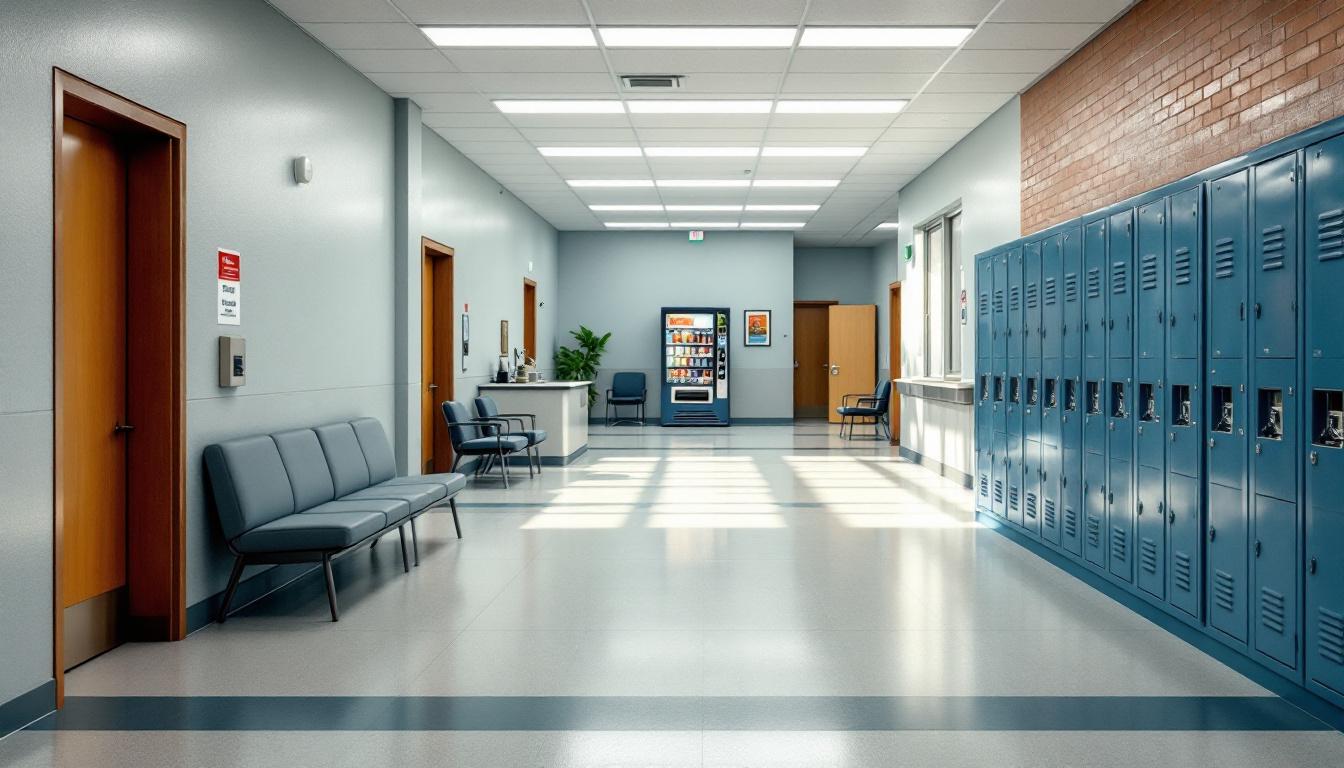
The sound of morning announcements echoes through housing units as individuals begin their structured daily routines, with staff actively coordinating movement between various areas of the facility. At present, the daily schedule typically revolves around scheduled meal times, work assignments, and programming opportunities that offer structure and purpose to residents’ time. Count times occur regularly throughout the day, requiring individuals to be present in their assigned areas while staff verify attendance and maintain security protocols.
Living accommodations at the facility generally consist of shared housing units where individuals may be assigned roommates based on security classification and program participation. The dormitory-style or cell-based housing typically includes basic furnishings such as beds, storage areas, and shared bathroom facilities, while common areas often provide space for television viewing and social interaction during designated hours. Additionally, residents usually have access to commissary services where they can purchase approved personal items, snacks, and hygiene products using funds from their institutional accounts.
Programming opportunities often include educational classes, vocational training, and substance abuse treatment that individuals may participate in based on their needs and sentence requirements. While recreational activities typically offer options such as outdoor exercise time, library access, and organized sports when weather and security conditions permit, family-focused programming may provide parenting classes and child development resources. Visitation policies generally allow for scheduled visits with approved family members and friends, while communication options typically include monitored phone calls and correspondence, helping individuals maintain important connections with their support systems during their incarceration.
Ready to Connect?
Start communicating with your loved one today
Search for an Inmate

